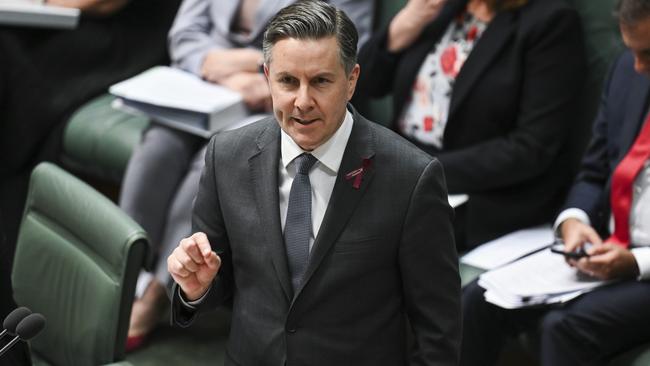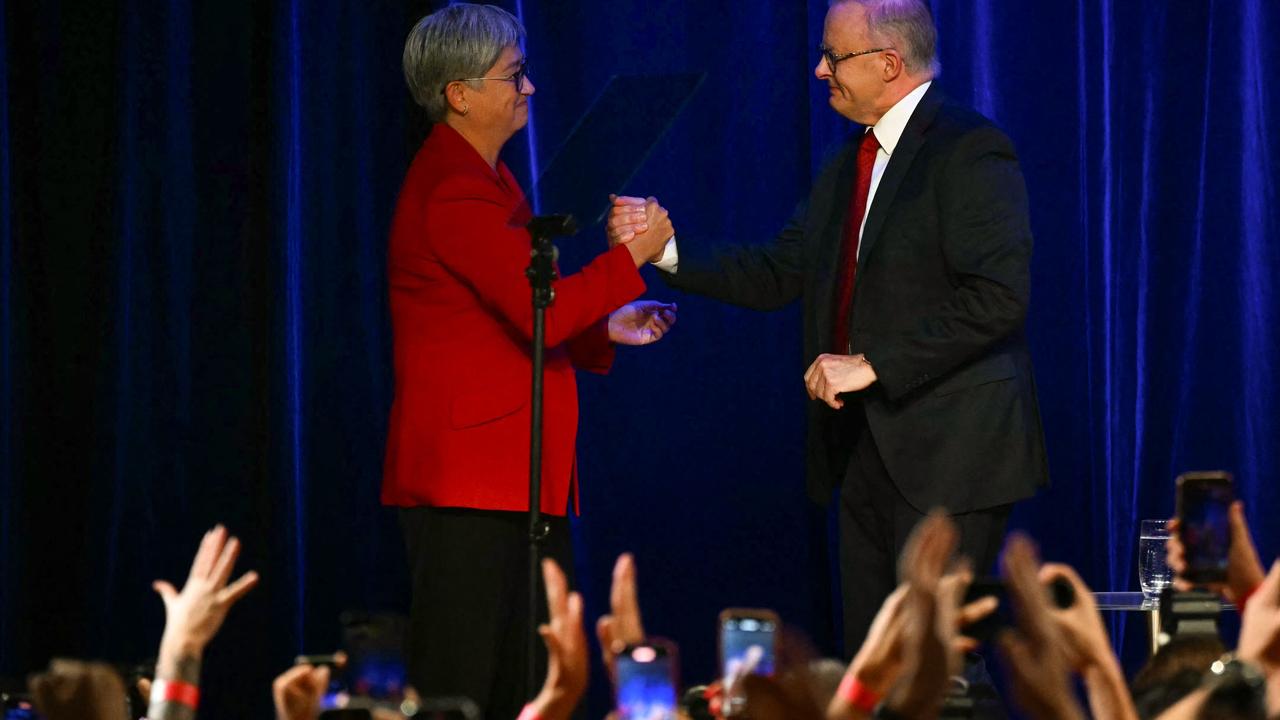Labor in secret about-face on medical funding
Health Minister Mark Butler has secretly backtracked on his commitment to force private health insurers to pay for essential medical devices used in surgeries.

Health Minister Mark Butler has secretly backtracked on his commitment to force private health insurers to pay for essential medical devices used in surgeries, which sparked warnings that hospitals would be forced to cut services and increase fees.
The nation’s peak doctor lobby also raised concerns that Labor’s reforms to the prostheses list had delivered “significant savings” to private health insurers while leaving patients adversely impacted.
The Department of Health in June quietly removed a mandate forinsurers to fund about 500 common medical devices – such as sponges, staples, internal adhesives and infusion pumps – used in a wide range of surgeries. The decision has blindsided hospitals after Mr Butler promised last December that insurers would be mandated to pay for medical devices to ensure patients did not face out-of-pocket costs.
“Insurers will be mandated to fund General Use Bundles, which means private patients will not face additional out of pocket costs for these consumables when they have surgery,” he said.
Australia’s largest non-government provider of health and aged-care services is calling on Labor to urgently rethink its reversal amid concern it will reduce patient choice and access to healthcare and increase the cost of healthcare for patients and providers.
The policy change will impact several common surgeries including breast cancer surgeries, gynaecological operations, caesarean births and bariatric surgeries where the cost of medical devices can be as much as $4000 per procedure.
Catholic Healthcare Australia health director Caitlin O’Dea said the hospital sector was marching off a “huge funding cliff” and called on Mr Butler to stick to his original promise.
The peak body – which accounts for about 10 per cent of hospital-based healthcare in Australia, 25 per cent of private hospitals and 5 per cent of public hospitals – estimates the sector will be $200m worse off under the decision while private health insurers will benefit.
“This unexpected U-turn has come as a complete shock to the hospital sector. We are heading for disaster,“ Ms O’Dea said.
“Millions of dollars and years of good faith consultation have been flushed away in a fiasco concluding with the department washing their hands of responsibility for ensuring good public policy outcomes for consumers.
“The effects of this funding cliff would be disastrous, and the ball is now firmly in the Health Minister’s court.”
The decision to remove funding arrangements for medical devices comes despite a Department of Health review that warned of unintended consequences if alternative funding arrangements for surgical devices were not found.
Australian Medical Association president Steve Robson said private health insurers must cover the cost of the medical devices otherwise patients might face extra fees and clinical choice would be limited.
“The Prosthesis List is going through a process of fundamental reform, with changes so far delivering significant savings to private health insurers,” Professor Robson said.
“The AMA has consistently said private health insurers must cover reasonable costs of prostheses, including what are known as General Use items – otherwise clinical choice may be limited and patients may face extra costs.”
Mr Butler told The Australian the government was focused on ensuring Australians could access affordable medicines, treatments and devices and he would continue to engage with all stakeholders regarding the policy change. “The government’s priority is that people can access affordable medicines, treatments and medical devices and that the Australian taxpayer gets value for money, both in the public system and through our support for private health insurance,” he said.
The Australian understands Labor met “significant issues” in the policy’s implementation period following Mr Butler’s announcement last December amid major division within stakeholders across the sector.
The department now says it expects that medical devices will continue to be covered by private health insurance providers under standard funding arrangements, despite no official mandate in place.
Opposition health spokeswoman Anne Ruston said it was “shocking” Mr Butler had made a decision that risked patients paying more for their hospital care and put additional strain on to the public hospital system.





To join the conversation, please log in. Don't have an account? Register
Join the conversation, you are commenting as Logout